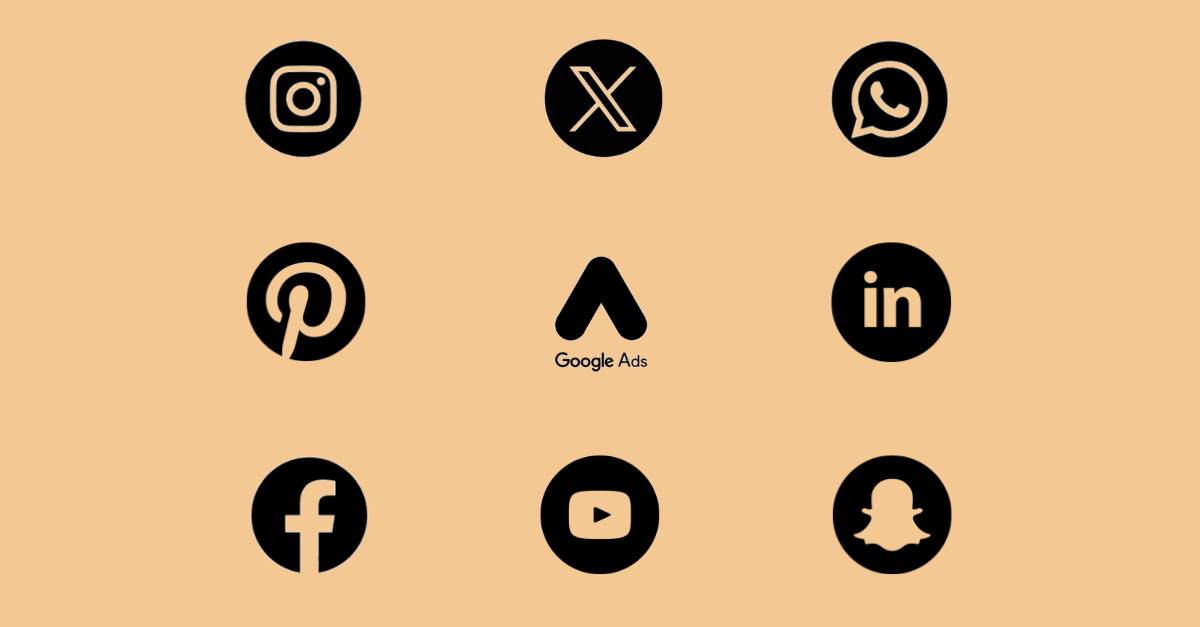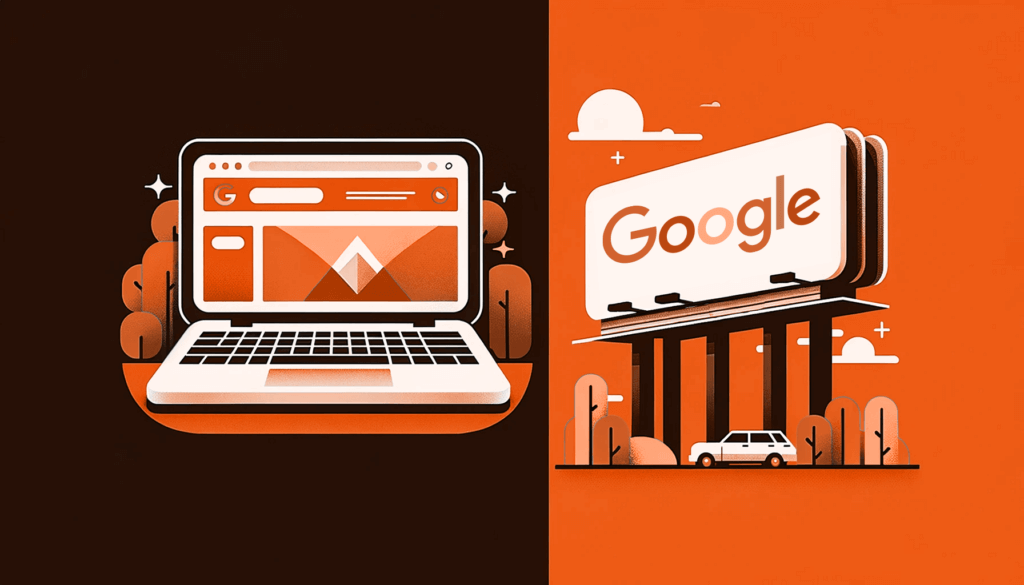B2B tech marketers are constantly faced with the challenge of choosing the most effective strategy to reach their target audience. From the age-old traditional methods to the data-driven performance marketing, the landscape has seen a significant shift. In the B2B sector, understanding these differences is crucial. The buying cycle, decision-making process, and stakeholder involvement differ greatly from B2C, making it imperative for marketers to grasp the nuances. This article breaks down both types, offering B2B tech marketers a comprehensive guide to making informed decisions.
What is performance marketing?

Performance marketing, also known as performance-based marketing, is a comprehensive term that refers to online marketing and advertising programs that operate on a results-driven model. Advertisers only pay when a specific action is completed, such as a sale, lead or click. This ensures a more efficient campaign without wasting budgets or resources.
In B2B performance marketing, the emphasis is often on targeting specific professional segments or industries, ensuring precision compared to the boarder approach seen in many B2C campaigns. The actions or conversions are not just sales but can include downloading a whitepaper, signing up for a webinar, or scheduling a product demo.
Channels and tactics
Various channels offer unique opportunities to connect with potential clients and drive desired actions (and value to their audience). Each channel has its strengths, and for B2B tech marketers, understanding how to leverage them can be the key to reaching decision-makers and influencing their choices. Here's a closer look at key performance marketing channels for B2B:
- Search engine marketing (SEM): SEM is a powerful tool for B2B marketers to reach decision-makers actively searching for solutions. By bidding on specific keywords related to their products or services, you can ensure your offerings appear at the top of search results, capturing the attention of potential clients at the moment of intent.
- Social media advertising: Platforms like LinkedIn are goldmines for B2B marketers. With the ability to target ads based on job titles, industries, and company sizes, you can tailor campaigns to reach the exact audience you want. Sponsored content or targeted ads can drive awareness and generate leads from decision-makers.
- Affiliate marketing: In B2B, affiliate marketing often takes the form of partnerships with industry influencers, bloggers, or review sites. By using their credibility, you can gain introductions to a wider audience and earn trust more quickly.
- Email marketing: Email remains a dominant channel for B2B communication. Performance marketing via email involves sending targeted campaigns to segmented lists, ensuring the content is relevant to the recipient. This could mean sharing the latest whitepapers, case studies, or product updates to nurture leads and drive conversions.
Benefits of performance marketing
Performance marketing has revolutionized the way businesses approach their marketing strategies, especially in the B2B sector. With its data-driven approach, it offers a range of benefits that can be particularly advantageous for B2B tech companies aiming to connect with decision-makers. Here are some of the primary benefits:
- Measurable results: One of the standout features of performance marketing is its ability to provide real-time data and analytics. So, you can track campaign effectiveness and ROI in real-time, optimising marketing budgets.
- Targeted audience reach: Whether it's through SEM keyword targeting or LinkedIn ad campaigns aimed at specific job titles, you can ensure content reaches the right decision-makers, increasing the chances of conversions.
- Cost-effectiveness: The pay-for-performance model ensures companies only spend their budget on campaigns that lead to desired actions, be it clicks, leads, or sales. This often results in a higher ROI compared to traditional marketing methods.
- Flexibility and adaptability: Performance marketing campaigns can be tweaked and adjusted in real-time based on performance data. You can quickly pivot strategies, test new approaches, and optimize campaigns to ensure relevance to the target audience.
What is traditional marketing?
Traditional marketing, often dubbed "offline marketing," encompasses marketing tactics that existed before the rise of the internet. It's the old-school way of getting the word out, and despite the digital revolution, it still holds value, especially in certain contexts and demographics.

Traditional marketing channels
There are a wide variety of primary channels that traditional marketing utilises, but the following are especially relevant for B2B:
- Print: This includes advertisements in newspapers, magazines, brochures, and other printed materials. Trade magazines or industry journals are particularly relevant for tech.
- Broadcast: Think TV and radio commercials. While they might seem outdated, they can still be effective, especially for B2B companies targeting a specific region or demographic.
- Telephone: Cold calls or telemarketing might not be everyone's favourite, but they can be effective for B2B sales, especially when trying to reach decision-makers directly.
- Outdoor: Billboards, posters, and flyers fall into this category. For B2B tech companies attending trade shows or conferences, these can be invaluable for brand visibility.
Traditional marketing methods, while sometimes seen as old-fashioned, offer tangible touchpoints that can leave a lasting impression. When integrated with modern digital strategies, they present a comprehensive approach to engaging potential clients. To understand more about this integration, explore our previous blog on digital vs traditional marketing.
Benefits of traditional marketing
In the digital age where performance marketing is quickly rising in popularity, the relevance of traditional marketing for B2B tech companies might seem questionable. Yet, its unique advantages play a pivotal role, especially when targeting specific sectors of the B2B landscape that digital strategies alone might miss. Here's why:
- Wide reach and established credibility: Traditional channels like print and broadcast offer unparalleled reach, especially in target regions or demographics. Being featured in respected industry journals or on prime-time TV can significantly enhance a company's credibility, a factor that's invaluable in the trust-driven B2B space.
- Tangible touchpoints for prolonged engagement: In a world dominated by digital interactions, traditional marketing offers physical materials, such as brochures and print ads, that stakeholders can revisit. This tangible reminder can reinforce brand recall and provide a lasting impression.
- Comprehensive audience understanding: Not all decision-makers in the B2B sector are digital natives. Some prefer a print magazine over a digital blog or a face-to-face meeting over a virtual one. Integrating traditional methods help companies connect with their entire target audience, boosting lead generation.
- Synergy with modern strategies: Traditional marketing isn't about sidelining digital efforts but complementing them. For instance, QR codes on print adverts can bridge the offline-online gap, creating a seamless experience for potential clients.
In the B2B tech sector, traditional marketing ensures comprehensive outreach, trust-building, and a holistic approach to audience engagement, making it an indispensable tool even in today's digital age.
Performance marketing vs traditional marketing
Both performance marketing and traditional marketing offer its own set of advantages and challenges, and their effectiveness can vary based on the objectives, target audience, and industry context. Understanding these differences and how it relates to your company, ensures your strategies are efficient and resonates with your target audience.
Let's take a closer look at how these two marketing methodologies compare:
| Criteria | Performance marketing | Traditional marketing |
| Effectiveness | Offers immediate insights, allowing for real-time campaign adjustments. Precision targeting can lead to higher conversion rates. | Establishes broad brand presence and credibility. Impactful in terms of brand recall and recognition. |
| Cost | Often provides a better return on investment, especially when the target audience is well-defined and their online behaviours are understood. | Costs can be higher, especially for large-scale campaigns. However, the broad reach can justify the investment. |
| Reach | Targets specific online audiences, often narrower but more precise. | Offers a broader reach, encompassing a wide demographic, especially beneficial if the audience values traditional media. |
| Adaptability | Highly adaptable due to real-time data. Campaigns can be tweaked instantly based on performance. | Less adaptable. Once a campaign is launched, especially in print or broadcast, changes can't be made immediately. |
Kings and queens of performance marketing
We thrive on digital, and performance marketing is how we bring immense success to clients like TCS. You might remember their campaign “Building on Belief” for the London Marathon last year – yes that was us!
So how did we bring this brand message to life? Firstly, we maintained focus on their strategy, which was to drive engagement, traffic to their website and app downloads. Then, we leveraged a performance marketing strategy, focusing on platforms like LinkedIn, Meta, and X to efficiently target their niche audience. With a limited budget, this approach was ideal, ensuring spend only on achieving specific actions like website visits and app downloads. The real-time data and metrics allowed for immediate campaign adjustments, maximizing engagement and cost-effectiveness.
The results? Improved brand awareness and actions from TCS’s targeted audience.
How to choose the right advertising approach for your B2B tech business
Having read the benefits of both marketing approaches, it might be a struggle to choose which is better suited for your campaigns. Well, when deciding between performance marketing and traditional marketing for your B2B marketing campaigns, there are several factors to consider:
- Business goals: What are you aiming to achieve? If it's brand awareness, traditional might be the way to go. For precise lead generation or conversions, performance marketing might be more suitable.
- Target audience: Understand where your audience spends their time. If they're more digitally inclined, performance marketing on platforms they frequent would be beneficial. However, if they still value print or broadcast media, traditional marketing shouldn't be overlooked.
- Budget: Financial constraints can heavily influence your choice. Startups or businesses with limited budgets might find performance marketing more appealing due to its pay-for-performance model. In contrast, established brands with larger budgets might have the flexibility to invest in both.
- Stage of business: A startup aiming to make its mark might lean heavily on performance marketing to drive immediate results. In contrast, an established brand looking to maintain its presence might allocate resources to both strategies.
Best of both worlds
In B2B where decision-making processes are often intricate and drawn out, a blended marketing strategy can be particularly effective. By integrating both traditional and performance marketing, businesses can ensure they're reaching decision-makers at every stage of their journey. Traditional marketing can lay the groundwork, building brand trust and recognition among industry leaders and stakeholders. This foundation can be crucial in the B2B realm, where trust plays a pivotal role in partnership and purchasing decisions.
On the other hand, performance marketing, with its precision targeting, can drive specific actions, be it attending a webinar, downloading a whitepaper, or initiating a trial. It allows B2B marketers to engage with potential clients on platforms where they're actively seeking solutions, ensuring timely and relevant interactions.
In essence, by harnessing the strengths of both approaches, B2B tech businesses can craft a comprehensive and efficient strategy that resonates with their unique audience, from initial awareness to final conversion.
Performance marketing is what we do
There’s a reason our marketers are called the Performance Marketing team – it’s what we do and it’s where are expertise lie. This means we understand the unique challenges you face, and how overcome them.
Don’t leave your marketing to chance. Get in touch.

